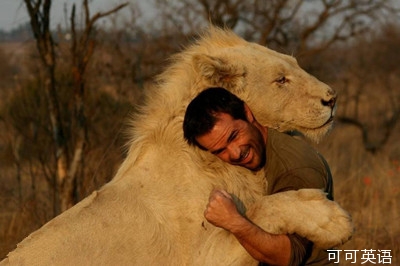What is the value of an intact rainforest?
一处原始热带雨林价值何在?
From a people perspective, maybe it's more useful turned into lumber and cropland.
单从人类的角度来看,或许把它变成木材和耕田会更有用。
The responses to such arguments have often cited what are called ecosystem services.
而在回应这些争论时常会引用到一个叫做“生态系统服务”的词。
These are the keys to life that natural systems provide for free—think: breathable air and potable water.
想想这些大自然生态系统免费提供的可呼吸的空气及可饮用水,生命因为有这些才能存活。
Other counters point to the psychological benefits of the natural world.
另一些论据则是大自然带给人类精神上的馈赠。
 Now we have a new reason for conservation: human health.
Now we have a new reason for conservation: human health.
而现在我们又多了一个保护大自然的理由:为了人类自身的健康。
Turns out forest fires set to clear land in Indonesia generate the kind of soot that lodges in lungs and shortens lives across Southeast Asia.
结果证明印度尼西亚地区放火烧林清理土地时产生的一种可吸入肺的碳烟并且缩短了东南亚地区人们的寿命。
Dams and irrigation projects upriver in Africa increase the population of malarial mosquitoes downriver.
而非洲河流上游处实施的水坝和灌溉工程增加了下游地区携带疟疾的蚊子。
These are just two of the examples from a new analysis in Proceedings of the National Academy of Sciences.
这只是美国国家科学院院刊一项新的分析报告所列举的其中两个例子。
Then consider big upheavals like global warming.
那么再细想像全球变暖这一类的骤变。
Climate change means more deadly heat waves, allergies, infectious diseases and, potentially, a breakdown in food supplies.
气候变化意味着致命热浪、过敏、传染病等更频繁的出现,还有可能导致食物供应的崩溃。
All obviously bad for human health.
所有这些都明显不利于人类健康。
Our understanding of these complex interactions is incomplete.
我们并不能完全理解以上这些复杂的相互作用。
For example, a given forest clearing may be good for some people's well-being but not others, both now and in the future.
那么举个例子吧,假设开垦了一片森林可能会成全某些人的幸福,但对其他人并没有任何好处,不管是现在还是将来。
A better understanding of nature's value will probably prove vital for human health in the 21st century.
如何与大自然和谐相处可能会是决定21世纪人类健康的关键。












